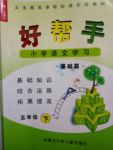题目内容
Recently some American schools have made changes in the traditional school year to improve student learning.
Some have extended the school year, or reorganized it to avoid a long summer break. Another choice is to extend the school day. A new report from the Center for Evaluation and Education Policy at Indiana University examines research into how effective this is.
The traditional school day has not changed much in more than a century. Activities or special programs might mean a longer day. But younger children usually go to school from about nine o’clock in the morning until about three in the afternoon. Older ones are traditionally in school from about seven a.m. until around two p.m.
Some high schools have changed to later start times because of findings that teenagers learn better that way. But the new report says results have been mixed. Teachers say students are more awake. But students say the changes interfere with after-school activities or jobs.
By 2001, almost one-third of all secondary schools had some form of block scheduling. The idea is to provide longer periods in the school day to teach basic subjects. More class time should mean better results. This is the thinking, at least. Yet a 2001 study found that secondary schools with traditional schedules had higher test scores by comparison. Schools with block scheduling did have higher scores in science, though..
Experts say it is what educators do with the extra time that has the largest effect on student learning. They note a criticism that education leaders often make scheduling changes without changing the learning environment of a school.
1.What was the original intension of schools’ extending school time?
A.To carry out more after-school activities.
B.To make students learn more.
C.To prevent students from taking jobs.
D.To win better reputations.
2.From the passage, we know that, traditionally, younger children _________ than older ones.
A.go to school later B.stay at school for longer time
C.leave school earlier D.have less activities
3.Why don’t children like late starts of school days?
A.Because they can’t sleep late.
B.Because they have less time after school.
C.Because they can’t enjoy more classes.
D.Because they don’t accept new things.
4.What is the experts’ general attitude towards the changes?
A.Positive. B.Negative. C.Optimistic. D.Neutral.
5.According to the experts, longer school time is not as important as _________.
A.more activities B.more basic subjects
C.better learning environment D.better education leaders.
BABBC

 小学学习好帮手系列答案
小学学习好帮手系列答案 小学同步三练核心密卷系列答案
小学同步三练核心密卷系列答案When people talk of a virus these days, chances are that they are talking about computer virus that have the power wipe out all the valuable work people may have stored in their computers. Imagine, the virus has the power to make military systems, giant banks, airports, hospitals and traffic system come to stop!
What does a computer virus do? It targets electronic objects that are programmed. The virus spreads through connections between these electronic objects. For virus spreading experts, e-mail is a favorite method of sending their destructive (破坏性的) weapon.
But scientists warn that this is not the worst that can happen. There is more. People are also connected through phones. The next virus may actually target mobile phones, especially those that are programmed to do many tasks apart from just communicating. It would then be easy for a virus to infect those programs and create major disorder.
For example, these virus may have the power to record your phone conversations and make others hear them. They create problems with your electronic money accounts, or they could create a mountain of telephone bills for calls you never made. And that would be a disaster. A report on this was published in the New Scientist recently.
One way out would be to have simpler phones with not so many different functions. This would mean there would mean there would be fewer programs for the virus to attack. But mobile phone producers are in a fix. People on longer want an electronic item to perform just one task. They want more and more functions added. That would mean more software programs to make the mobile phone perform all those functions. And that means the possibility of more viruses.
【小题1】It can be inferred from the passage that ______.
| A.computer viruses are not so as destructive as mobile phone viruses |
| B.people should be careful when receiving e-mails |
| C.people find it difficult to use electronic equipment correctly |
| D.having electronic money accounts brings people a lot of convenience |
| A.You can’t hear the person who answers the phone clearly |
| B.You can’t send e-mails with your mobile phone |
| C.your phone bill increases for unknown reasons |
| D.You can hear other people’s phone conversations |
| A.Mobile phone producers have made no progress. |
| B.Mobile phone producers are proud of their products. |
| C.Mobile phone producers are faced with a difficult situation. |
| D.Mobile phone producers refused to fight against virus. |
| A.Government officials | B.Virus spreading experts |
| C.Electronic scientists | D.Mobile phone users |
I am a mother of three and have recently completed my college degree. My teacher’s last 36 of the term was called “ Smile”. I am a very friendly person and always 37 at everyone. So I thought this would be very 38 .
Soon after we were given the project, my 39 went out to McDonald’s. We were waiting to be 40 , when all of a sudden everyone around us began to 41 , and even my husband did. There standing behind me were two homeless men 42 .
As I looked down at the short gentleman with 43 eyes, he said, “Good day.” The second man stood behind his friend. I 44 the second man was mentally challenged(智障) and the blue-eyed gentleman was his helper.
The young 45 at the counter asked him what they wanted.
He said, “Coffee is all, Miss.” Because that was all they could 46 .
I smiled and asked the young lady to give me two more breakfast meals on a 47 tray(托盘). I then said to the men, “ I did not do this for you. God is here 48 through me to give you hope.”
When I joined my husband, he smiled at me, saying, “That is 49 God gave you to me, Honey, to give me hope.”
I returned to 50 with this story in hand. I 51 “my project” and the teacher read it. Then she looked up at me and said, “Can I 52 this with the class?”
I slowly 53 and she began to read and that was when I knew that we, as human beings, share this to help people and to be 54 .
In my own way I had 55 the people at McDonald’s, my husband, sons, teacher, and every person that shared the classroom on the last night I spent as a college student.
| 【小题1】 |
|
| 【小题2】 |
|
| 【小题3】 |
|
| 【小题4】 |
|
| 【小题5】 |
|
| 【小题6】 |
|
| 【小题7】 |
|
| 【小题8】 |
|
| 【小题9】 |
|
| 【小题10】 |
|
| 【小题11】 |
|
| 【小题12】 |
|
| 【小题13】 |
|
| 【小题14】 |
|
| 【小题15】 |
|
| 【小题16】 |
|
| 【小题17】 |
|
| 【小题18】 |
|
| 【小题19】 |
|
| 【小题20】 |
|
When I was a boy growing up in New Jersey in the 1960s, we had a milkman delivering milk to our doorstep. His name was Mr. Basille. He wore a white cap and drove a white truck. As a 5-year-old boy, I couldn’t take my eyes off the coin changer fixed to his belt. He noticed this one day during a delivery and gave me a quarter out of his coin changer.
Of course, he delivered more than milk. There was cheese, eggs and so on. If we needed to change our order, my mother would pen a note—“Please add a bottle of buttermilk next delivery”—and place it in the box along with the empty bottles. And then, the buttermilk would magically(魔术般)appear.
All of this was about more than convenience. There existed a close relationship between families and their milkmen. Mr. Basille even had a key to our house, for those times when it was so cold outside that we put the box indoors, so that the milk wouldn't freeze. And I remember Mr. Basille from time to time taking a break at our kitchen table, having a cup of tea and telling stories about his delivery.
There is sadly no home milk delivery today. Big companies allowed the production of cheaper milk thus making it difficult for milkmen to compete (竞争). Besides, milk is for sale everywhere, and it may just not have been practiced to have a delivery service.
Recently, an old milk box in the countryside I saw brought back my childhood memories. I took it home and planted it on the back porch (门廊). Every so often my son's friends will ask what it is. So I start telling stories of my boyhood, and of the milkman who brought us friendship along with his milk.
【小题1】Mr. Basille gave the boy a quarter out of his coin changer .
| A.to show his magical power | B.to pay for the delivery |
| C.to satisfy his curiosity | D.to please his mother |
| A.He wanted to have tea there. | B.He was a respectable person. |
| C.He was treated as a family member. | D.He was fully trusted by the family. |
| A.Nobody wants to be a milkman now. | B.It has been driven out of the market. |
| C.Its service is getting poor. | D.It is forbidden by law. |
| A.He missed the good old days. | B.He wanted to tell interesting stories. |
| C.He needed it for his milk bottles. | D.He planted flowers in it. |
 31 cells, including 12 with a “live scan” system for drunken or disturbed prisoners, which detects the rise and fall of their chest. An alarm alerts(报警
31 cells, including 12 with a “live scan” system for drunken or disturbed prisoners, which detects the rise and fall of their chest. An alarm alerts(报警 ) officers if a prisoner's breathing stops and carries on ringing until the door is ope
) officers if a prisoner's breathing stops and carries on ringing until the door is ope ned.
ned.  friendliness. It is thought that strong blues will stimulate clear thought and lighter, soft colors will calm the mind and aid concentration.
friendliness. It is thought that strong blues will stimulate clear thought and lighter, soft colors will calm the mind and aid concentration.  ellow can lift spirits and self-respect.
ellow can lift spirits and self-respect. C.
C.  Blue. D. Red.
Blue. D. Red.